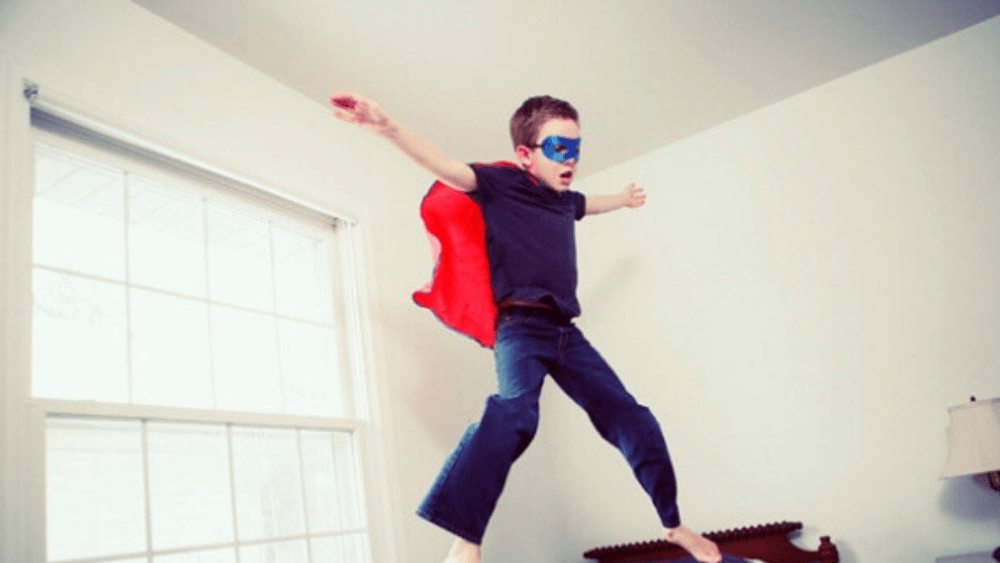Do you wonder if your child is exhibiting symptoms of ADHD? Does your child struggle to focus, follow directions, complete tasks or comply with authority? If you feel that these symptoms are wreaking havoc at home, school or with friendships, your child may be demonstrating symptoms of Attention Deficit Hyperactivity Disorder (ADHD).
What Is ADHD?
ADHD stands for Attention Deficit Hyperactivity Disorder, a neurodevelopmental disorder characterized by symptoms such as difficulty paying attention, impulsiveness, and hyperactivity. It is typically diagnosed in childhood and can continue into adulthood. ADHD is categorized in 3 ways: ADHD: inattentive type, ADHD: hyperactivity type, ADHD combined type.

Examples of symptoms of ADHD can vary from person to person, but generally include:
- Inattention: Difficulty paying attention to details, easily distracted, forgetful, disorganized
- Impulsiveness: Acting without thinking, interrupting others, taking risks without considering consequences
- Hyperactivity: Fidgeting, excessive talking, feeling restless, difficulty sitting still
How Can Parents Help Their Child Manage Symptoms of ADHD?
ADHD is often frustrating and overwhelming for both the child suffering from it and family members.  Arguments and stressful emotions may surface as a result of a lack of self regulation. In addition, parents may feel that they are constantly repeating themselves, managing outbursts and constantly requesting compliance. To help your child manage symptoms of ADHD, consider the following.
Arguments and stressful emotions may surface as a result of a lack of self regulation. In addition, parents may feel that they are constantly repeating themselves, managing outbursts and constantly requesting compliance. To help your child manage symptoms of ADHD, consider the following.
- Provide Structure and Routine: Having a predictable routine and clear expectations can help reduce anxiety and increase focus. Consider using a visual schedule so that your child is clear on what they need to do both before and after school. Also, be sure to break the schedule down into specific tasks.
- Exercise: Physical activity can help reduce hyperactivity and improve attention. In addition, to regular exercise, have a list of physical activities that your child can participate in when you notice overactivity. Talk to your child about things they enjoy doing and make a list. Common examples include jumping jacks, burpees, running in place, dancing, walking up and down the stairs multiple times. Additionally, remember, your child cannot control these feelings of overactivity and need an outlet.
- Sleep: Getting enough sleep is crucial for managing ADHD symptoms and improving overall functioning.
- Manage Emotions: When your child begins to become dysregulated or combative, they are most likely responding impulsively. It is important to follow the steps below.
- Remain calm.
- Comment on what you are observing: “It seems like you are angry about ___. I am sorry to see you are having a tough moment.”
- Help your child to calm down their physical body: provide them with choices to help them calm down. “Let’s try to calm down. You can take a break in the other room, hug a stuffed animal, get a hug from me, punch a punching bag. Let me know what works for you. I will give you a minute to decide”
- After they are calm, process the event. Hold your child accountable if they are disrespectful.
- Encourage your child to use the coping strategies noted above in the future.
- Remind your child that you love them and are there to support them as they learn to regulate their emotions/impulsivity in an appropriate manner.
- Maintain A Healthy Diet: A balanced and nutritious diet can positively impact ADHD symptoms.
- Consider Medication: For some children, medication prescribed by a doctor can be effective in managing ADHD symptoms. Try not to be afraid to use medication. Some children will not be able to access coping mechanisms without medication management. Medication can be a game changer for many children that suffer with ADHD.
- Therapy: Reach out to a licensed counselor should you feel that your child needs additional support. Behavioral therapy, such as cognitive-behavioral therapy (CBT) or coaching, can help children with ADHD develop coping strategies and social skills.

You Are Not Alone In Helping Your Child Cope With Symptoms Of ADHD!
It’s important to remember that every child is different, and what works for one child may not work for another. You are not alone as you learn to manage symptoms of ADHD. Reach out for help from https://crystalwaterscounseling.com/ for additional support, guidance or consultation.
Start Therapy to Help Your Child Manage Symptoms of ADHD in Baltimore, MD
If you are wanting to get additional support then we can help. Our Baltimore therapists specialize in treating ADHD. We can help them learn valuable skills that will help them cope in healthy ways throughout their life. To get started, follow these steps.
- Reach out for a free consultation at our Baltimore area therapy practice
- Schedule your first appointment for therapy
- Learn how to navigate motherhood, work through stressors and improve your overall quality of life.
Other Therapy Services We Offer in Maryland & the Washington DC Area
At Crystal Waters Counseling Centers we offer a variety of in-person and online therapy services. They are available for children, teens, college students, women, and adults throughout Maryland. This includes counseling for both anxiety and depression. As well as EMDR Therapy, therapy for life transitions, and parent coaching.

